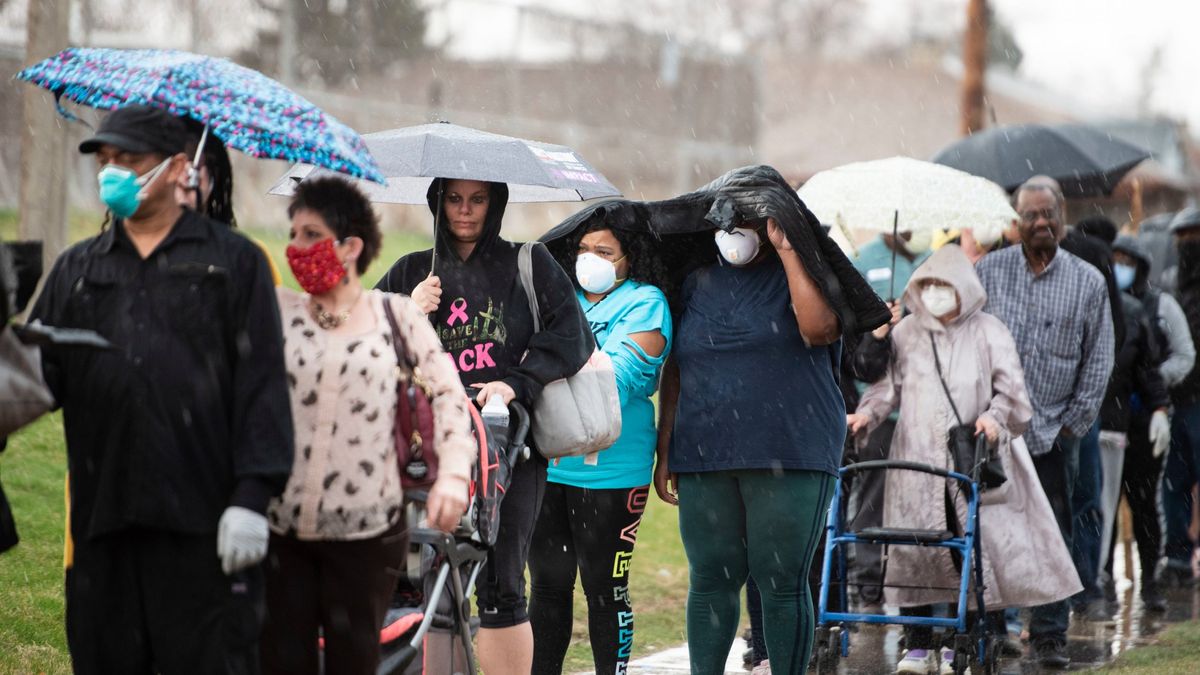Wisconsin holds presidential primary despite coronavirus fears

A few minutes every morning is all you need.
Stay up to date on the world's Headlines and Human Stories. It's fun, it's factual, it's fluff-free.
On April 7, voters in Wisconsin went to the polls to vote for their preferred candidates for the Democratic and Republican nominations. While the Republicans have coalesced around United States President Trump, the race for the Democratic ticket is still ongoing.
For the Democrats, former US Vice President Joe Biden holds a significant lead over Bernie Sanders, a senator from Vermont. A win in Wisconsin could further cement his status as frontrunner.
With the ongoing coronavirus battle, the election was complicated. Many voters faced long lines due to reduced poll locations as many workers and volunteers decided to stay home. By court order, the results will not be released until April 13.
Thus far, Wisconsin has recorded over 2,500 coronavirus infections and 92 deaths.
Voter perspectives
Some voters expressed that they felt forced to choose between their health and democratic participation. “It feels bad to have to choose between your personal safety and your right to vote,” said Dan Bullock, 40, a voter in Milwaukee. “But you have to be heard.”
Others opted to stay at home, choosing instead to prioritize safety. Hannah Gleeson, a pregnant woman who had tested positive for the novel coronavirus reported that she was still waiting for an absentee ballot she requested last week. “It seems really unfair and undemocratic and unconstitutional,” she argued. “I think it’s voter suppression at its finest.”
“They could have delayed the election with no problem,” added Michael Claus, another Milwaukee resident, who decided to weather the long lines with a protective mask.
Debate over election
In the weeks preceding the election, local officials had sparred over how it would unfold. Eleven days before polls were set to open, Tony Evers, Wisconsin’s Democratic governor, submitted a formal request to the state’s legislature to send voter ballots by mail. The Republican-controlled house denied the request, citing security concerns.
On Monday, Evers then signed an executive order in an attempt to delay the election until June 9. This was rejected by Wisconsin’s Supreme Court and later cemented by a US Supreme Court ruling. It also limited the amount of time absentee ballots could be considered legitimate.
In a dissenting decision, Ruth Bader Ginsberg, associate justice of the US Supreme Court, argued that the ruling “will result in massive disenfranchisement.” Republican state legislature officials, however, lauded the decision, saying that the governor’s attempts to delay the election were “clearly an unconstitutional overreach.”
[article_ad]
Have a tip or story? Get in touch with our reporters here!
Sign up for daily news briefs from The Millennial Source here!




Comments ()